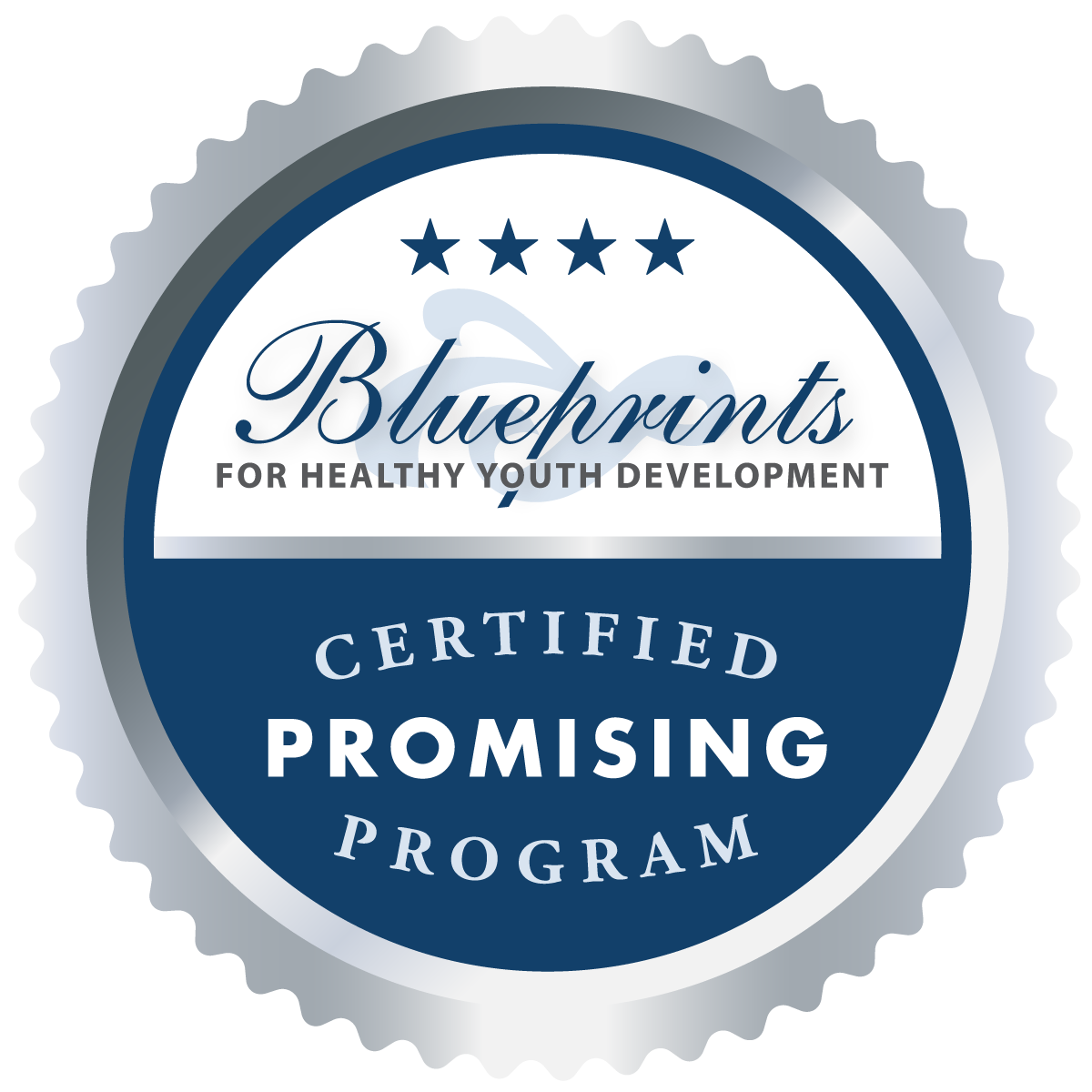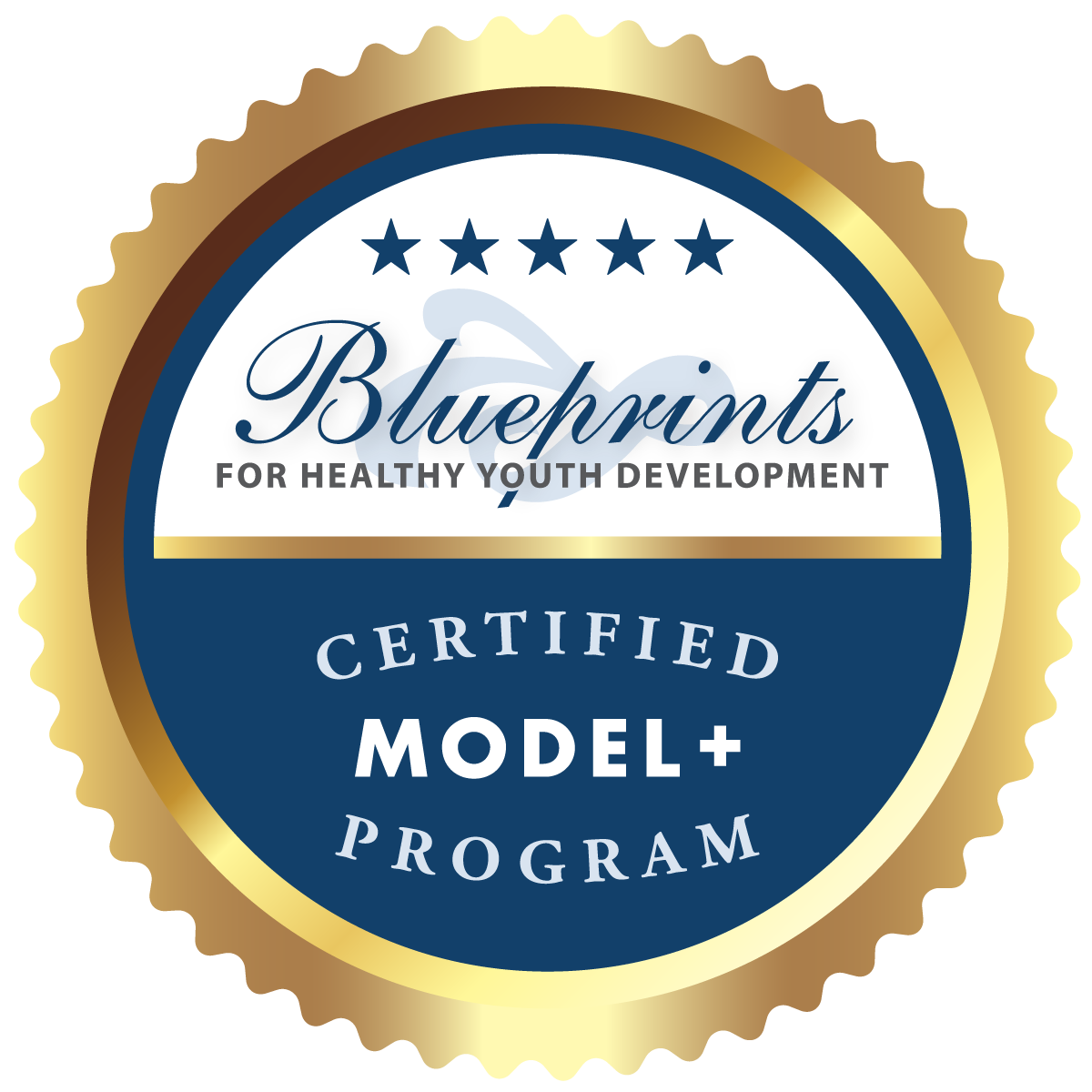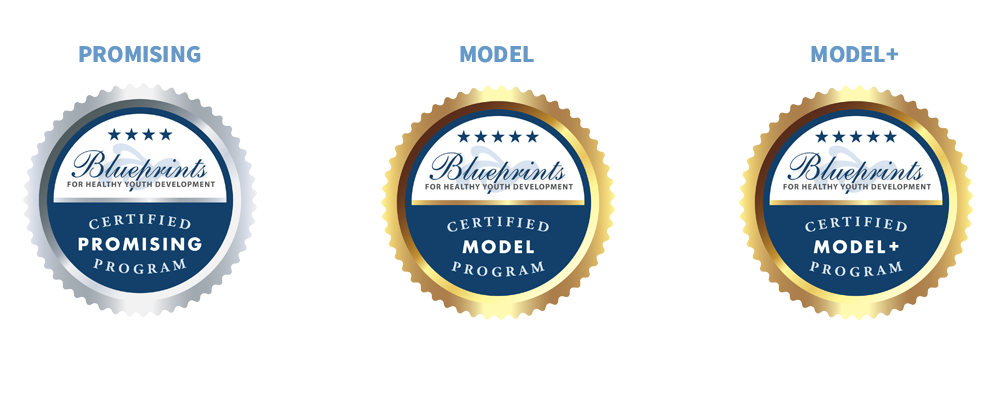
 The Blueprints for Healthy Youth Development mission is to provide a comprehensive registry of scientifically proven and scalable interventions that prevent or reduce the likelihood of antisocial behavior and promote a healthy course of youth development and adult maturity. We also advocate for evidence-based interventions locally and nationally and produce publications on the importance of adopting high-scientific standards when evaluating what works in social and crime prevention interventions.
The Blueprints for Healthy Youth Development mission is to provide a comprehensive registry of scientifically proven and scalable interventions that prevent or reduce the likelihood of antisocial behavior and promote a healthy course of youth development and adult maturity. We also advocate for evidence-based interventions locally and nationally and produce publications on the importance of adopting high-scientific standards when evaluating what works in social and crime prevention interventions.
Most programs implemented in communities to improve youths’ lives, unfortunately, do not produce the hoped-for effects when rigorously evaluated, or cost more to implement than they produce in benefits. Blueprints promotes only those interventions with the strongest scientific support.
Interventions certified by Blueprints are family, school, and community-based and target all levels of need—from broad prevention programs that promote positive behaviors while decreasing negative behaviors to highly-targeted programs for at-risk children, troubled teens or formerly incarcerated adults that get them back on track.
At Blueprints, we identify, recommend, and disseminate programs for youth, families and communities that, based on scientific evaluations, have strong evidence of effectiveness. Those programs are rated as either Promising, Model or Model Plus. When searching our registry of programs, each result will indicate the program rating. Thank you for your interest in our proven programs.
The Blueprints mission is to provide a registry of evidence-based interventions that are effective in reducing antisocial behavior and promoting a healthy course of youth development and adult maturity.
Most programs implemented in communities to improve youths’ lives, unfortunately, do not produce the hoped-for effects when rigorously evaluated, or cost more to implement than they produce in benefits. Blueprints promotes only those interventions with the strongest scientific support. It does so by providing a list of interventions certified as Promising, Model or Model Plus that communities can adopt with confidence.
Interventions certified by Blueprints are family, school, and community-based and target all levels of need — from broad prevention programs that promote positive behaviors while decreasing negative behaviors to highly-targeted programs for at-risk children, troubled teens or formerly incarcerated adults that get them back on track.
Select below to learn more about Blueprints’ role in each area

For practitioners, policy-makers and funders interested in adopting a Blueprints-certified program for your community:

For program developers and evaluators interested in understanding Blueprints certification standards:
Blueprints-Certified Program Tiers
Blueprints Certified Program Tiers
At Blueprints for Healthy Youth Development, we identify, recommend, and disseminate programs for youth, families and communities that, based on scientific evaluations, have strong evidence of effectiveness. Those programs are rated as either Promising, Model or Model Plus. When searching our registry of programs, each result will indicate the program rating.
Promising

Model

Model Plus


Standards of Evidence
Each intervention certified by Blueprints for Healthy Youth Development has been reviewed by an independent panel of evaluation experts and determined to meet a clear set of rigorous scientific standards. Programs meeting these standards have demonstrated at least some electiveness for changing targeted behavioral outcomes. The following chart highlights the evidence criteria for receiving Blueprints certification.
| Evidence-Based | Evidence Continuum | Type of Evidence | Confidence Continuum | Blueprints Program |
|---|---|---|---|---|
| ✔ | Experimentally Proven (Ready for Scale) |
Independently Conducted Randomized Control Trial with Replication and Sustained Effects |
Very High | Model Program |
| ✔ | Experimentally Proven (Ready for Scale) |
Randomized Control Trial with Replication and Sustained Effects |
High | Model Program |
| ✔ | Experimental | Randomized Control Trial or Quasi-Experimental Design with Replication, including: Regression Discontinuity, Comparative Interrupted Time Series and Instrumental Variable Analysis |
Moderate | Promising Program |
| N/A | Research Informed | Evaluations with No Control Group |
Low | Not Blueprints Certified |
| N/A | Opinion Informed | Satisfaction Survey Personal Experience Testimonials Anecdotes |
Very Low | Not Blueprints Certified |